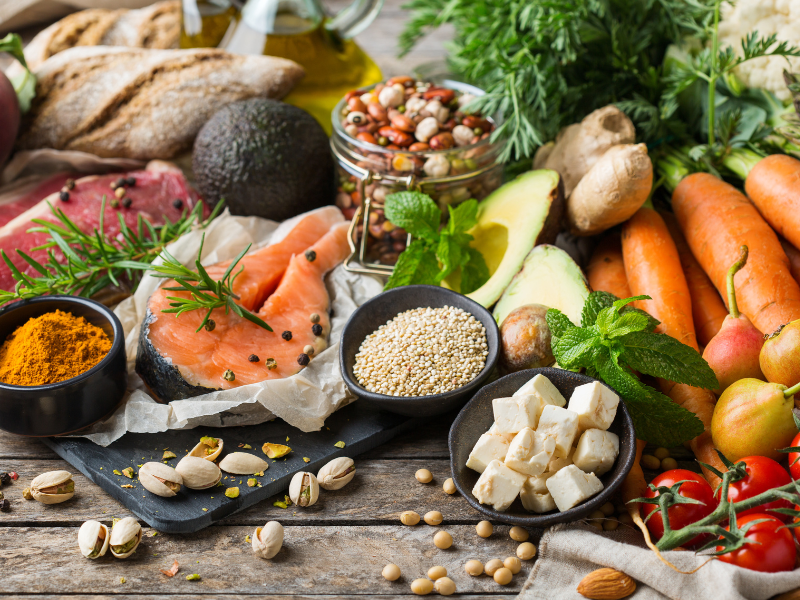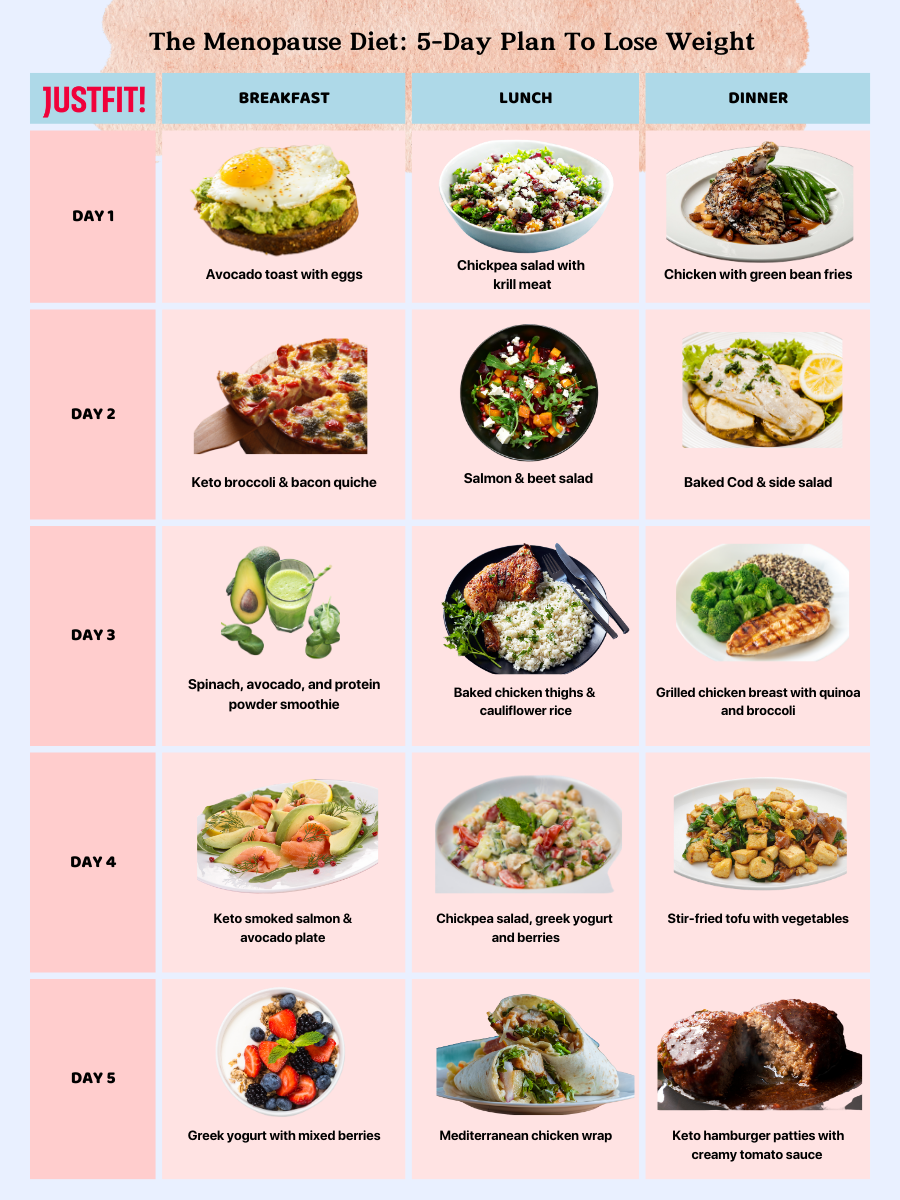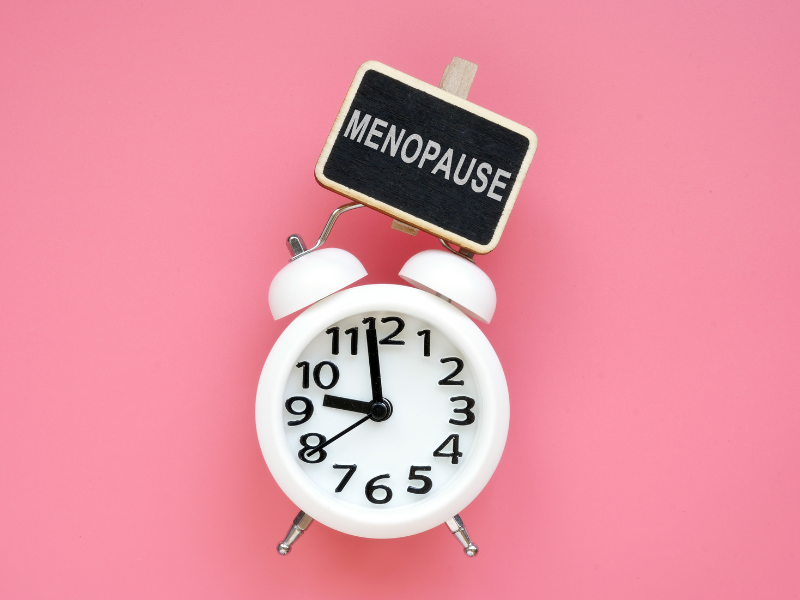


Menopause is a significant transition in a woman’s life, marking the end of her menstrual cycle and reproductive years [1]. Typically occurring between the mid-40s and early 50s, this stage brings about various hormonal changes that can impact overall well-being. As a result, a woman’s diet becomes increasingly important, influencing both mental and physical health.
In this article, we will explore one of the most common concerns that arise during menopause: the need to manage weight gain. We present to you the menopause diet: 5-day plan to lose weight, along with a free PDF tool, designed to help combat weight gain during this transformative period.
Understanding Menopausal Changes

Menopause can often be a scary term for women as they begin venturing into the mature stages in of their lives. But it’s a lot less intimidating to embrace these natural changes once we learn more about it and understand how to manage menopause symptoms!
As the menstrual cycle ends, estrogen levels gradually decline, leading to a range of physical and emotional symptoms. These menopausal symptoms include:
- Mood swings
- Hot flashes
- Brain fog
- Fatigue
- Vaginal dryness
- Mental health challenges like depression and anxiety [2].
These hormonal changes can also lead to insulin resistance, which affects how the body processes sugar and can contribute to weight gain [3]. Additionally, menopause increases the risk of developing heart disease, insulin sensitivity, and osteoporosis.
Weight Gain During Menopause

As estrogen plays a crucial role in regulating metabolism and metabolic rate, lower levels of this hormone can reduce the body’s ability to burn calories. This shift contributes to weight gain and alters fat distribution. According to the British Menopause Society, women may experience an average weight increase of 1.5 kg during the perimenopausal years, with potential weight gain nearing 10 kg by the end of this phase.
- A sedentary lifestyle also contributes to this weight gain as physical exercise is necessary to maintain muscle mass.
- Women also go through disturbed or irregular sleep patterns during this period of time which can lead to an increase in the ghrelin hormone. This hormone signals hunger and results in overeating.
- Anxiety and depression also induce stress eating as a coping mechanism, and therefore multiple factors are working against women when it comes to maintaining a healthy weight.
How to Manage Weight Gain During Menopause

When your body is undergoing significant changes, it’s essential to focus on your diet.
During menopause, nutrition should prioritize foods that lower the risk of cancer and diabetes, improve heart health, and support weight management. Recommended foods include:
- Unsaturated, healthy fats like avocado and olive oil
- Fruits and leafy greens and vegetables
- Lean proteins
- Whole grains, nuts, and seeks
- Low-fat dairy products.
The Mediterranean diet is often recommended because it incorporates the food groups that support weight loss and maintaining muscle mass. It’s also advisable to avoid sugary drinks, alcohol, caffeine, processed meats, and refined grains. Staying active is crucial, too, with regular exercise focusing on the abdominal muscles, as increased belly fat is common during this time.
See also: Intermittent Fasting During Menopause: Everything You Need to Know
The Menopause Diet: 5-Day Plan To Lose Weight [Free PDF]
The 5-day diet plan designed for women experiencing menopause offers a variety of healthy and delicious meal recommendations to support weight loss. Effective meal planning is crucial to ensure you stick to the diet and achieve the desired weight loss results. In order to maintain your body weight and shape, the menopause diet 5-day plan to lose weight can prove to be very effective.
Having discussed the importance of diet and nutrition during this stage, we’re excited to help you implement these strategies in your daily life. Our handy, free PDF tool can be printed and displayed in your kitchen for easy reference, making it simpler to follow this nourishing diet plan. Below, you’ll find a more detailed version of the meals to assist with your cooking needs!

Day 1
Breakfast: Avocado toast made with gluten-free bread, mashed avocado, and topped with eggs
Lunch: Chickpea Salad with Olives, Cucumber, Feta, and Krill Meat
Dinner: Chicken with green bean fries and chipotle mayo
Day 2
Breakfast: Crustless keto broccoli and bacon quiche
Lunch: Salmon walnut beet salad
Dinner: Baked Cod with a side salad
Day 3
Breakfast: Smoothie with spinach, avocado, and protein powder
Lunch: Baked chicken thighs with cauliflower rice and spinach dip
Dinner: Grilled chicken breast with quinoa and broccoli
Day 4:
Breakfast: Keto smoked salmon and avocado plate
Lunch: Chickpea salad and plain Greek yogurt with berries
Dinner: Stir-fried tofu with vegetables
Day 5
Breakfast: Greek yogurt with mixed berries
Lunch: Mediterranean chicken wrap
Dinner: Keto hamburger patties with creamy tomato sauce and cabbage
You may also like:
7-Day Weight Loss Low-Carb Diet To Achieve Your Dream Body
7-Day Keto Diet Plan for Beginners (Free PDF)
Conclusion

Menopause is a natural stage in a woman’s life that can be embraced positively when symptoms are managed effectively. To do this, it’s essential to make lifestyle changes, particularly regarding diet and fitness. As the body ages, it becomes more challenging to burn calories, so being mindful of food intake and incorporating regular exercise is crucial.
For tailored workout plans during menopause, try the JustFit app, which offers a range of options, including low-intensity exercises like chair workouts, designed to support women through menopause!
What is the best diet for a menopausal woman to lose weight?
What exercises get rid of menopause weight gain and belly?
Does fasting help menopause weight?
What foods should I avoid in menopause?
British Menopause Society. (2023, June). Menopause: Nutrition and weight gain. Available at: https://thebms.org.uk/wp-content/uploads/2023/06/19-BMS-TfC-Menopause-Nutrition-and-Weight-Gain-JUNE2023-A.pdf Grant MD, Marbella A, Wang AT, et al. Menopausal Symptoms: Comparative Effectiveness of Therapies [Internet]. Rockville (MD): Agency for Healthcare Research and Quality (US); 2015 Mar. (Comparative Effectiveness Reviews, No. 147.) Introduction. Available at: https://www.ncbi.nlm.nih.gov/books/NBK285446/





